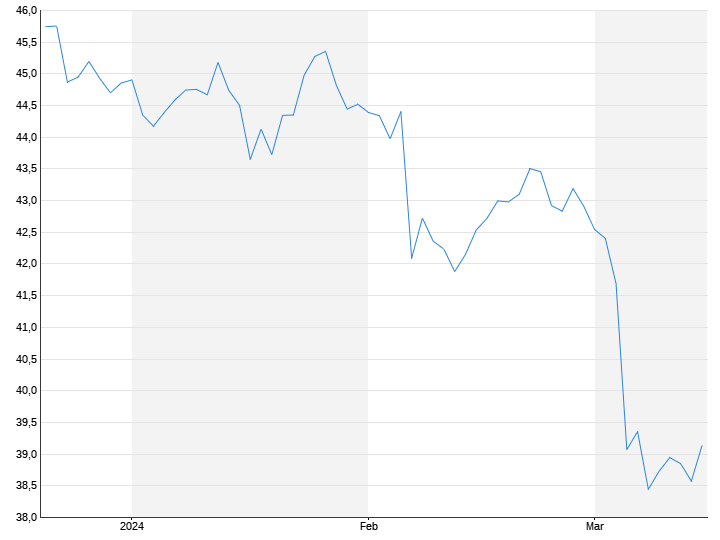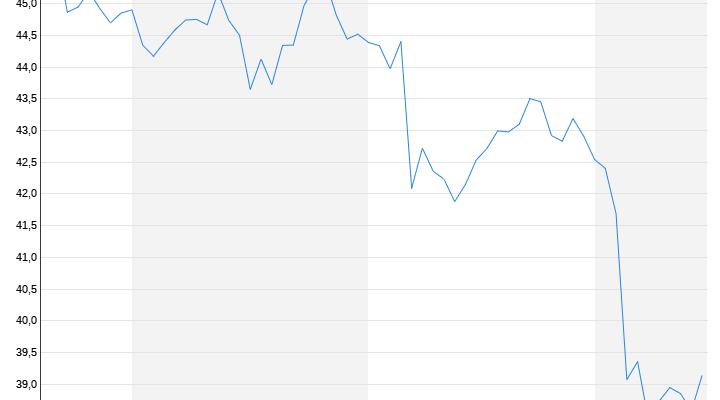Demand especially in large cities
DHL subsidiary launches a parcel station for everyone
March 18, 2024, 7:23 a.m
Listen to article
This audio version was artificially generated. More info | Send feedback
Delivering parcels to customers costs a lot of resources; when delivering to parcel shops, consumers are bound to opening times. Vending machines are very popular in the logistics industry. With a subsidiary, DHL now offers a solution for all shipping companies.
Germany’s parcel leader DHL is breaking new ground with its kiosk network. After the Bonn-based group has relied for years on packing stations that are only intended for its own parcels and now has more than 13,000 locations, a new subsidiary is to bring alternative machines called OneStopBox onto the market. “We want to set up 100 machines this year, 2,000 next year and several thousand in the years after that,” said the head of the subsidiary, Lukas Beckedorff. “Our focus is on larger cities; there is a great need in Munich, for example.”
Not only DHL, but also other parcel companies should be able to store or collect their shipments in the new machine – so it should also be open to the competition. In addition, retailers should be able to deposit their goods until customers pick them up. The prospects are good, says Beckedorff. “More and more citizens want to use machines and thus have flexible access to shipments.”
Consumer delivery costs resources
Vending machines are playing an increasingly important role in the parcel industry in order to be able to cope with the increasing volume of shipments. Many consumers still have their packages sent home, which is laborious and expensive for logisticians. Your transporters have to make many stops to deliver the packages. If the recipient is not at home, valuable waiting time is lost and the parcel carrier has to take the shipment back with him.
This is an expensive matter for parcel companies, especially since the CO2 footprint of such a delivery is often poor. It would be better for the logistics company if they could hand over a larger quantity of parcels in one place – for example at machines, where the recipient can later come by after a digital notification and gain access with a code.
While DHL has moved ahead and doubled the number of its packing stations to more than 13,000 since 2020, the competition held back. Hermes has had its own machines since autumn 2022, currently 20 in the Hamburg area. GLS also relies on its own locations on a small scale. But they focused on parcel shops so that customers can drop off or pick up shipments there. This is cheaper for the logisticians, after all there is no need to invest in machines. The catch is that consumers have to stick to the opening hours; it’s more inconvenient than a metal cabinet that’s available 24 hours a day.
Salzburg as an example

Local politicians have long been calling for an industry solution. The cities hope that this will bring progress in climate protection and benefits for their citizens, who will no longer have to go to different, sometimes more distant, locations. The idea is that they would have a central drop-off and pick-up point in their neighborhood. This could reduce traffic in cities by reducing the average travel time to pick up packages. And the transporters also have shorter routes on average.
In the parcel industry we speak of “white label” machines, which look inconspicuous and do not have a company’s brand color. The OneStopBox of the new DHL subsidiary “Innovative and Sustainable Automations-Solutions GmbH” is white.
The idea of opening machines to different package providers is not new. The Salzburger Stadtwerke founded the company Myflexbox in 2018, which now has 500 locations in Austria. The company entered the German market at the end of 2022. According to managing director Lukas Wieser, there are now almost 200 locations in this country, and by the end of the year there will be 600 to 700. “We’re moving up a gear.” The location partners include the housing association LEG, which has a presence in several federal states and whose properties the white machines are located. They can also be found at gas stations and supermarkets. In Germany, shipments are delivered by GLS, UPS and Fedex.
One difference from the DHL subsidiary OneStopBox is that no parcel service provider is a shareholder in the Austrian company. From the perspective of co-managing director Jonathan Grothaus, this is a big advantage. “As a result, we enjoy great trust from our business partners: They know that we do not pursue any self-interest as a parcel service provider and may therefore treat them worse.” All parcel companies need as much storage capacity as possible in times of particularly high shipment volumes – for example during the Christmas season. When it comes to this important question for companies, who gets compartments, all customers are treated equally. The confidential management of data from various parcel service providers is also sensitive. “We are neutral like Switzerland.”
Competing logistics companies are cautious
It is often difficult to find places to set up the metal compartments. “When looking for a location for DHL packing stations, municipalities and other location providers sometimes turned us down because they didn’t rely on the system of a single provider,” says DHL manager Benjamin Rasch. Now OneStopBox offers a provider-neutral solution that everyone can join. “We hope to open up new locations that DHL didn’t get before.”
The Biek industry association, which represents the interests of DHL’s competitors, has been promoting an industry path for vending machines for a long time. Such considerations roll off DHL’s radar, after all, its own packing stations are already well utilized. Now the Bonn market giant is launching a “white label” vending machine company in which it holds 100 percent of the shares – so it is not a joint venture with other partners. Biek boss Marten Bosselmann expresses himself in a rather polite and reserved manner: “We welcome the fact that DHL no longer sees the future of parcel stations exclusively in their packing stations that are only used for DHL parcels.” Hermes remains vague, and DPD says DHL Group’s white label approach is “an interesting development that we will follow closely.”
